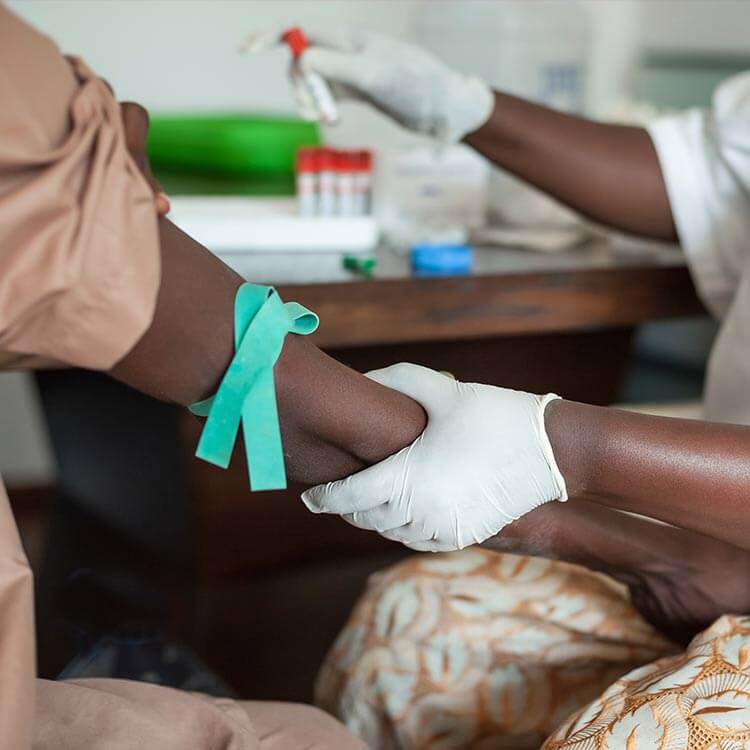Search
Research
The role of fit testing N95/FFP2/FFP3 masks: a narrative reviewFor healthcare workers performing aerosol-generating procedures during the COVID-19 pandemic, well fitted filtering facepiece respirators, for example, N95/FFP2 or N99/FFP3 masks, are recommended as part of personal protective equipment. In this review, we evaluate the role of fit checking and fit testing of respirators, in addition to airborne protection provided by respirators. Filtering facepiece respirators are made of material with sufficient high filter capacity to protect against airborne respiratory viruses.
Research
Hospital admissions for skin and soft tissue infections in a population with endemic scabies: A prospective study in Fiji, 2018-2019Scabies is an important predisposing factor for impetigo but its role in more serious skin and soft tissue infections (SSTIs) is not well understood. Information is limited on incidence of SSTIs in the presence of endemic scabies. We conducted a prospective study of hospital admissions for SSTIs in the Northern Division of Fiji (population: 131,914). Prospective surveillance for admissions with impetigo, abscess, cellulitis, wound infection, pyomyositis, necrotizing fasciitis, infected scabies, and crusted scabies was conducted at the Division's referral hospital between 2018 to 2019. Information was collected on demographic characteristics, clinical features, microbiology, treatment and outcomes.
Research
Poor treatment outcomes of children on highly active antiretroviral therapy: protocol for a systematic review and meta-analysisWhile access to highly active antiretroviral therapy (HAART) for children with HIV has expanded and the use of HAART has substantially reduced the morbidity and mortality of children due to HIV, poor treatment outcomes among children with HIV are still a major public health problem globally. The aim of this systematic review and meta-analysis is to quantify treatment outcomes among children with HIV.
Research
An observational study of the reactogenicity and immunogenicity of 13-valent pneumococcal conjugate vaccine in women of childbearing age in Papua New GuineaMaternal immunization with pneumococcal conjugate vaccine (PCV) may protect young infants in high-risk settings against the high risk of pneumococcal infections in early life. The aim of this study was to determine the safety and immunogenicity of 13-valent PCV (PCV13) in healthy women of childbearing age in PNG.
Research
Multi-Omic Data Integration Allows Baseline Immune Signatures to Predict Hepatitis B Vaccine Response in a Small CohortVaccination remains one of the most effective means of reducing the burden of infectious diseases globally. Improving our understanding of the molecular basis for effective vaccine response is of paramount importance if we are to ensure the success of future vaccine development efforts. We applied cutting edge multi-omics approaches to extensively characterize temporal molecular responses following vaccination with hepatitis B virus (HBV) vaccine. Data were integrated across cellular, epigenomic, transcriptomic, proteomic, and fecal microbiome profiles, and correlated to final HBV antibody titres.
Research
Systems Biology Methods Applied to Blood and Tissue for a Comprehensive Analysis of Immune Response to Hepatitis B Vaccine in AdultsConventional vaccine design has been based on trial-and-error approaches, which have been generally successful. However, there have been some major failures in vaccine development and we still do not have highly effective licensed vaccines for tuberculosis, HIV, respiratory syncytial virus, and other major infections of global significance. Approaches at rational vaccine design have been limited by our understanding of the immune response to vaccination at the molecular level. Tools now exist to undertake in-depth analysis using systems biology approaches, but to be fully realized, studies are required in humans with intensive blood and tissue sampling.

Research
Heritable and environmental determinants of hospitalisation for common childhood illnessesWe will leverage the unique Western Australian data linkage resources to undertake the definitive twin and sibling study of infection-related hospitalisation

Research
GAMA projectThis study investigated host gene expression in response to new HIV infection.

Research Theme
First Nations Health and EquityAboriginal health is everyone's business. The needs of Aboriginal and Torres Strait Islander families and kids is integrated into all relevant areas of our work. Improving the health and wellbeing of Aboriginal and Torres Strait Islander kids and families is an overarching priority for every team at The Kids.
Research
Nirsevimab binding-site conservation in respiratory syncytial virus fusion glycoprotein worldwide between 1956 and 2021: an analysis of observational study sequencing dataNirsevimab is an extended half-life monoclonal antibody to the respiratory syncytial virus (RSV) fusion protein that has been developed to protect infants for an entire RSV season. Previous studies have shown that the nirsevimab binding site is highly conserved. However, investigations of the geotemporal evolution of potential escape variants in recent (ie, 2015–2021) RSV seasons have been minimal.
